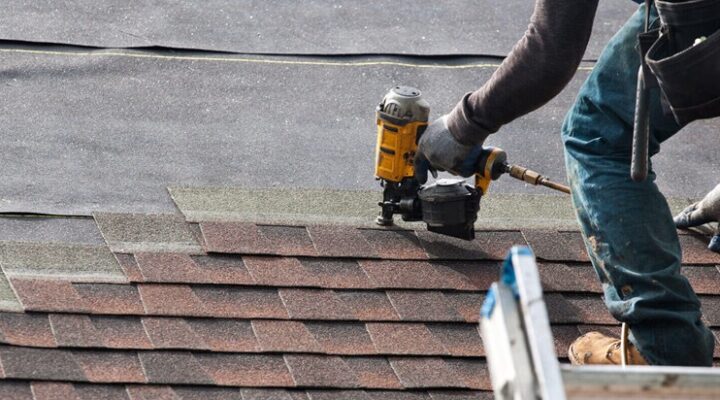
A new roof is a significant investment for any homeowner. Whether you need to replace an old, worn-out roof or are building a new home from scratch, the cost of a new roof is something you’ll need to consider. But how much does a new roof cost, exactly?
The answer to that question depends on a variety of factors, including the size and pitch of your roof, the type of material you choose, and the complexity of the installation process. In this article, we’ll break down the cost of a new roof and give you all the information you need to make an informed decision for your home.
Factors That Affect the Cost of a New Roof
The cost of a new roof depends on various factors, including:
1. Roof Size and Pitch
The size and pitch of your roof play a significant role in determining the cost. Roofs with a steeper pitch require more material and labor, which can increase the cost.
2. Type of Material
The type of material you choose for your roof will also impact the cost. Some of the most common roofing materials include:
- Asphalt shingles
- Metal
- Tile
- Wood shingles or shakes
Each material has its own pros and cons, and the cost will vary depending on the type and quality of the material you choose. For example, asphalt shingles are typically the most affordable option, while metal roofs are more expensive but can last much longer.
3. Roofing Company
The roofing company you choose will also impact the cost. The price can vary depending on the experience and expertise of the company. However, it’s crucial to choose a reputable company to ensure quality work and a long-lasting roof.
4. Roof Access
The accessibility of your roof also affects the cost. If your roof is difficult to access, it may require additional labor, time, and equipment to complete the installation.
5. Permits and Fees
Roofing permits and fees vary depending on your location. Before starting any roofing project, ensure you have the necessary permits and approvals, as failure to do so can result in costly fines.
Average Cost of a New Roof
The cost of a new roof can vary significantly, but the average cost for a typical 2,000-square-foot home is between $9,000 and $12,000. However, this cost can increase depending on the factors mentioned above.
Cost Breakdown by Material Type
Below is a breakdown of the average cost per square foot for each type of roofing material:
- Asphalt Shingles: $3.50-$5.50
- Metal: $5.00-$12.00
- Wood: $6.00-$18.00
- Tile: $7.00-$15.00
- Slate: $10.00-$30.00
Keep in mind that these are average costs, and the price can vary depending on the manufacturer, location, and quality of the materials.
Additional Costs to Consider
In addition to the cost of the roofing materials and labor, there are other expenses to keep in mind. These include:
1. Removal and Disposal of Old Roofing Materials
The cost of removing and disposing of old roofing materials can add to the total cost of a new roof. It’s essential to factor in these expenses when budgeting for a new roof.
2. Repairs and Upgrades
During the installation process, your roofing contractor may discover other issues with your roof, such as damage or leaks. It’s essential to address these issues as they can impact the longevity of your new roof.
3. Roofing Financing Options
If you don’t have enough savings to pay for a new roof upfront, you can explore financing options, such as:
- Home Equity Loan or Line of Credit: If you have equity in your home, you can apply for a home equity loan or line of credit to finance your new roof. These loans typically have lower interest rates and longer repayment terms than personal loans or credit cards.
- Personal Loan: You can also apply for a personal loan to finance your new roof. Personal loans have higher interest rates than home equity loans, but they don’t require collateral, and the approval process is faster.
- Credit Cards: You can use a credit card to pay for your new roof, but it’s not recommended unless you can pay off the balance in full before the due date. Credit cards have high-interest rates, and the interest can add up quickly if you carry a balance.
4. Roofing Maintenance and Insurance
To ensure the longevity and performance of your new roof, it’s essential to invest in regular maintenance and insurance. Here are some tips:
- Regular Maintenance: Schedule annual or bi-annual roof inspections and maintenance to identify and fix any potential issues before they turn into costly repairs or replacements.
- Roofing Insurance: Review your homeowner’s insurance policy to make sure it covers roof damage from storms, wind, hail, or other natural disasters. Consider purchasing additional insurance, such as extended warranties or roof protection plans, to provide extra coverage and peace of mind.
Conclusion
In summary, the cost of a new roof depends on various factors, including the size and pitch of your roof, material type, roofing company, roof access, permits and fees, removal and disposal of old roofing materials, roof repairs and upgrades, and roof maintenance. It’s essential to consider all these factors when budgeting for a new roof to avoid any surprises.
Leave a Reply